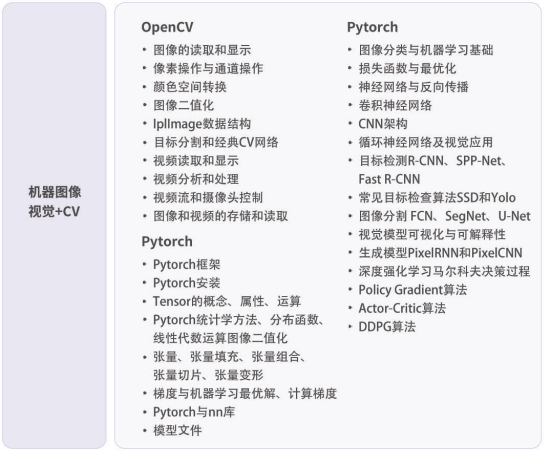本文主要是介绍计算机的起源和历史英语作文,求关于奥运会起源和历史的英文资料,希望对大家解决编程问题提供一定的参考价值,需要的开发者们随着小编来一起学习吧!
满意答案

416079北京
2013.09.11

采纳率:42% 等级:12
已帮助:8161人
History of the Olympic Games
Ancient Olympic Games
Chronology of athletic events added to the Olympic Games
Myths and the Olympic Games
Pelops myth
Hercules myth
The Importance of the Olympic Games
The Importance of Ancient Greek Athletics
The Religious Aspects of the Ancient Olympic Games
The Olympic Games and the Greek Calendar
The Sacred Truce
The internationalization of the Olympic Games
Modern Olympic Games
Highlights of Modern Olympic Games
International Olympic Committee
Official Olympic Anthem (Greek & English)
Host Cities of Olympic Games
Sydney for Olympic Games of 2000
Athens for Olympic Games of 2004
--------------------------------------------------------------------------------
Ancient Olympic Games
The Olympic Games begun at Olympia in Greece in 776 BC. The Greek calendar was based on the Olympiad, the four-year period between games. The games were staged in the wooded valley of Olympia in Elis. Here the Greeks erected statues and built temples in a grove dedicated to Zeus, supreme among the gods. The greatest shrine was an ivory and gold statue of Zeus. Created by the sculptor Phidias, it was considered one of the Seven Wonders of the World. Scholars have speculated that the games in 776 BC were not the first games, but rather the first games held after they were organized into festivals held every four years as a result of a peace agreement between the city-states of Elis and Pisa. The Eleans traced the founding of the Olympic games to their King Iphitos, who was told by the Delphi Oracle to plant the olive tree from which the victors' wreaths were made.
According to Hippias of Elis, who compiled a list of Olympic victors c.400 BC, at first the only Olympic event was a 200-yard dash, called a stadium. This was the only event until 724 BC, when a two-stadia race was added. Two years later the 24-stadia event began, and in 708 the pentathlon was added and wrestling became part of the games. This pentathlon, a five-event match consisted of running, wrestling, leaping, throwing the discus, and hurling the javelin. In time boxing, a chariot race, and other events were included.
The victors of these early games were crowned with wreaths from a sacred olive tree that grew behind the temple of Zeus. According to tradition this tree was planted by Hercules (Heracles), founder of the games. The winners marched around the grove to the accompaniment of a flute while admirers chanted songs written by a prominent poet.
The Olympic Games were held without interruptions in ancient Greece. The games were even held in 480 BC during the Persian Wars, and coincided with the Battle of Thermopylae. Although the Olympic games were never suspended, the games of 364 BC were not considered Olympic since the Arkadians had captured the sanctuary and reorganized the games.
After the Battle of Chaironeia in 338 BC, Philip of Makedon and his son Alexander gained control over the Greek city-states. They erected the Philippeion (a family memorial) in the sanctuary, and held political meetings at Olympia during each Olympiad. In 146 BC, the Romans gained control of Greece and, therefore, of the Olympic games. In 85 BC, the Roman general Sulla plundered the sanctuary to finance his campaign against Mithridates. Sulla also moved the 175th Olympiad (80 BC) to Rome.
The games were held every four years from 776 BC to 393 AD, when they were abolished by the Christian Byzantine Emperor Theodosius I. The ancient Olympic Games lasted for 1170 years.
The successful campaign to revive the Olympics was started in France by Baron Pierre de Coubertin late in the 19th century. The first of the modern Summer Games opened on Sunday, March 24, 1896, in Athens, Greece. The first race was won by an American college student named James Connolly.
Chronology of athletic events added to the Olympic Games
According to the tradition of Hippias of Elis ca. 400 BC, the events of the Olympic Games were added to the program in the following order.
Year
Olympiad
Event
776 BC
1st Olympiad
Stadium race
724 BC
14th Olympiad
double-stadium race
720 BC
15th Olympiad
long-distance race
708 BC
18th Olympiad
Pentathlon
708 BC
18th Olympiad
Wrestling
688 BC
23rd Olympiad
Boxing
680 BC
25th Olympiad
4-horse chariot race
648 BC
33rd Olympiad
horse race
648 BC
33rd Olympiad
Pankration
520 BC
65th Olympiad
race in armor
408 BC
93rd Olympiad
2-horse chariot race
Myths and the Olympic Games
Pelops myth
There are several Greek myths about how the games were started. The most common myth was the story of the hero Pelops, after whom the Peloponnese is named ("Pelops’ isle"). The story of Pelops was displayed prominently on the east pedimental sculptures of the Temple of Zeus. Pelops was a prince from Lydia in Asia Minor who sought the hand of Hippodamia, the daughter of King Oinomaos of Pisa. Oinomaos challenged his daughter's suitors to a chariot race under the guarantee that any young man who won the chariot race could have Hippodamia as a wife. Any young man who lost the race would be beheaded, and the heads would be used as decoration for the palace of Oinomaos. With the help of his charioteer Myrtilos, Pelops devised a plan to beat Oinomaos in the chariot race. Pelops and Myrtilos secretly replaced the bronze linchpins of the King's chariot with linchpins made of wax. When Oinomaos was about to pass Pelops in the chariot race, the wax melted and Oinomaos was thrown to his death. Pelops married Hippodamia and instituted the Olympic games to celebrate his victory. A different version of the myth refers to the Olympic games as funeral games in the memory of Oinomaos.
Hercules (Herakles) myth
Another myth about the origin of the Olympic Games comes from the Tenth Olympian Ode of the poet Pindar. He tells the story of how Herakles, on his fifth labor, had to clean the stables of King Augeas of Elis. Herakles approached Augeas and promised to clean the stables for the price of one-tenth of the king's cattle. Augeas agreed, and Herakles rerouted the Kladeos and Alpheos rivers to flow through the stables. Augeas did not fulfill his promise, however, and after Herakles had finished his labors he returned to Elis and waged war on Augeas. Herakles sacked the city of Elis and instituted the Olympic Games in honor of his father, Zeus. It is said that Herakles taught men how to wrestle and measured out the stadium, or the length of the footrace.
The Importance of the Olympic Games
The Importance of Ancient Greek Athletics
The ancient Greeks were highly competitive and believed strongly in the concept of "agon", or "competition" or "contest". The ultimate Greek goal was to be the best. All aspects of life, especially athletics, were centered around this concept. It was therefore considered one of the greatest honors to win a victory at Olympia. The fact that the only prize given at Olympia was an olive wreath illustrates this point. The athletes competed for honor, not for material goods.
Athletics were of prime importance to the Greeks. The education of boys concentrated on athletics and music as well as academic subjects such as philosophy. Education took place in the gymnasion and the palaistra as well as the academy.
The Religious Aspects of the Ancient Olympic Games
In ancient Greece, games were closely connected to the worship of the gods and heroes. Games were held as part of religious ceremonies in honor of deceased heroes, a concept displayed in the funeral games for Patroklos in Book 23 of Homer's epic poem, The Iliad. Games were also held in the context of many ancient fertility festivals. The games at Olympia were connected with both the funeral games of Oinomaos, established by Pelops, and a fertility cult involving any number of gods and goddesses who were worshipped at the site. The Olympic games began to be usurped by the prominent cult of Zeus, and eventually lost much of their religious character.
The Olympic Games and the Greek Calendar
The Greek calendar was based on the conception of the four-year Olympiad. When Greek historians referred to dates, they most often referred to a year (i.e., first, second, third, fourth) within the Olympiad that the event occurred. The winner of the stadium race in a given year had the Olympiad named in honor of him. The first Olympiad is therefore known as that of Koroibos of Elis, the winner of the stadium race in 776 BC.
The Sacred Truce
The sacred truce was instituted during the month of the Olympiad. Messengers known as "spondorophoroi" carried the word of the truce and announced the date of the games all over the Greek world. The truce called for a cessation of all hostilities for a period of one month (later three months) to allow for the safe travel of athletes to and from Olympia. Armies and armed individuals were barred from entering the sanctuary. In addition, no death penalties could be carried out during the period of the truce.
The Internationalization of the Olympic Games
From the beginning, the games at Olympia served as a bond between Greeks and strengthened the Greek sense of national unity. During the Hellenistic period, Greeks who came to live in foreign surroundings such as Syria, Asia, and Egypt, strove to hold on to their culture. One of the ways to achieve this was to build athletic facilities and continue their athletic traditions. They organized competitions, and sent competitors from their towns to compete in the Panhellenic games.
In the 2nd century A.D., Roman citizenship was extended to everyone within the Roman empire. From then on, the participation of many competitors from outside of Greece in the Olympic games, gave them to a degree, international nature.
When the Greek government reinstated the games in 1896, this international character of the competitions was preserved by Baron de Coubertin. Now, 16 centuries later, the Olympic games attract competitors from countries all over the world.
Modern Olympic Games
The best amateur athletes in the world match skill and endurance in a series of contests called the Olympic Games. Almost every nation sends teams of selected athletes to take part. The purposes of the Olympic Games are to foster the ideal of a "sound mind in a sound body" and to promote friendship among nations.
The modern Olympic Games are named for athletic contests held in ancient Greece for almost 12 centuries. They were banned in AD 394 but were revived and made international in 1896. The Winter Games were added in 1924. World War I and World War II forced cancellation of the Olympics in 1916, 1940, and 1944, but they resumed in 1948 and are held every four years. After 1992 the Winter and Summer Games were no longer held within the same calendar year. Winter Games were scheduled for 1994, after only a two-year interval, and every four years thereafter. The Summer Games were scheduled for 1996, and every four years thereafter.
Summer and Winter Sports
Summer sports include archery, basketball, boxing, canoeing, cycling, equestrian events (horseback riding), fencing, field hockey, gymnastics, handball, judo, rowing, shooting, soccer, swimming, tennis, track and field, volleyball, water polo, weight lifting, wrestling, and yachting. Winter events include skating, skiing, bobsledding, luge, tobogganing, ice hockey, and the biathlon (skiing-shooting).
00分享举报
这篇关于计算机的起源和历史英语作文,求关于奥运会起源和历史的英文资料的文章就介绍到这儿,希望我们推荐的文章对编程师们有所帮助!









